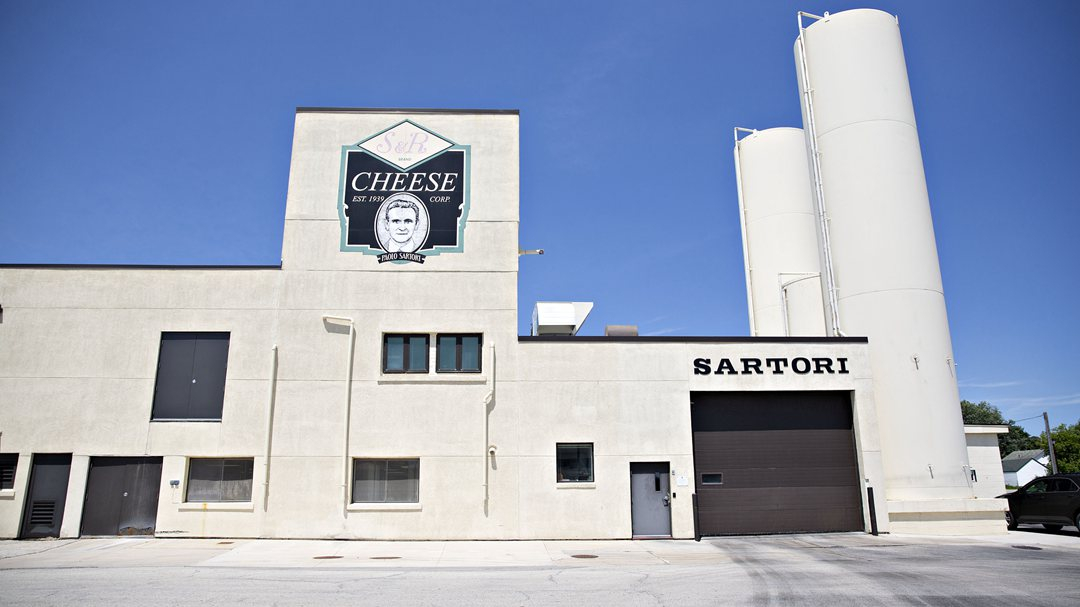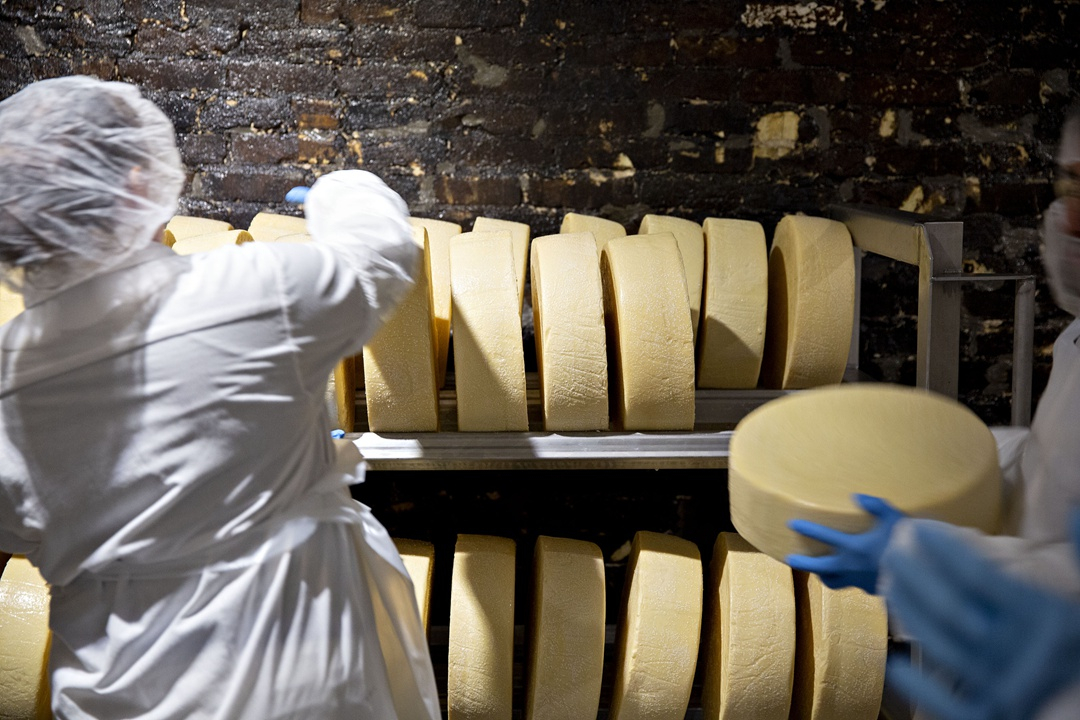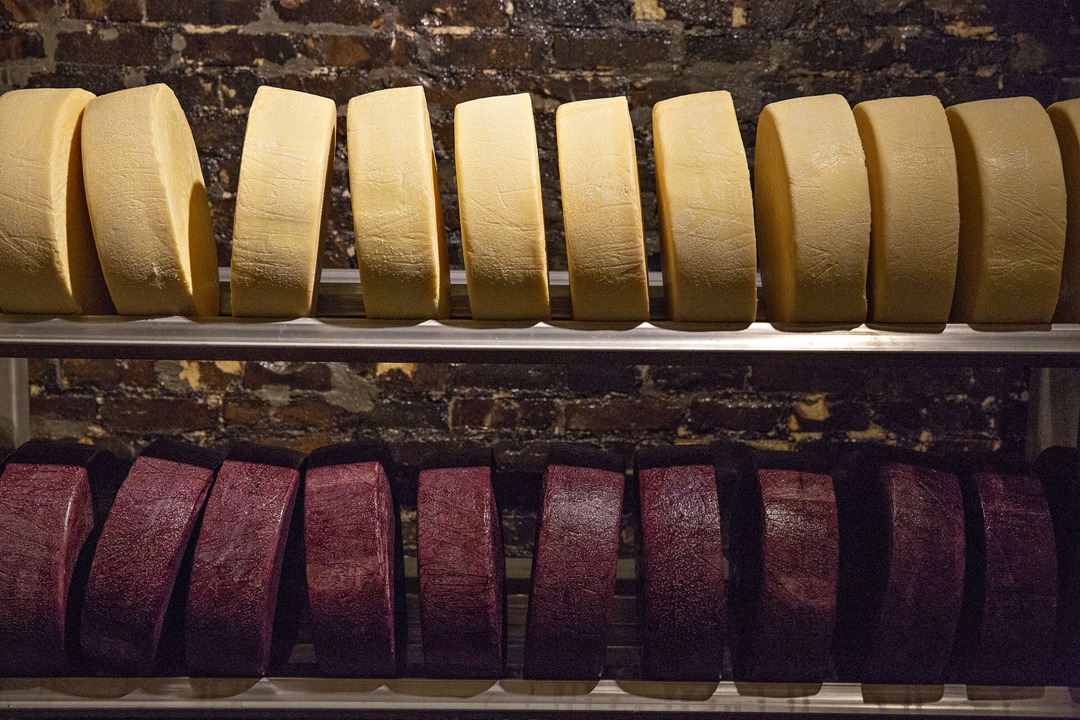
Business
12:36, 12-Jul-2018
US cheese-makers feel sting of US trade disputes
Updated
11:55, 15-Jul-2018
Hendrik Sybrandy

Among those feeling the sting of current US trade disputes are American cheese-makers. Responding to US tariffs, China and Mexico have now raised import duties on US cheese. This comes on top of already high tariffs on US dairy bound for Canada. So big dairy states like Wisconsin are nervous over how and when this war will end.
“Cheese is more than a cultural icon for us,” said John Umhoefer, executive director of the Wisconsin Cheese Makers Association. “It’s big business in Wisconsin.”
In fact, cheese has put food on the table in the state for many, many years.
“Sartori Cheese, our ambition is to make the best cheese in the world,” said Blair Wilson, Sartori’s vice president of marketing.

Workers take BellaVitano cheese wheels from a rack to rub with black pepper at the Sartori Cheese factory in Plymouth, Wisconsin, US, on July 3, 2018. /VCG Photo
Workers take BellaVitano cheese wheels from a rack to rub with black pepper at the Sartori Cheese factory in Plymouth, Wisconsin, US, on July 3, 2018. /VCG Photo
The fourth generation family-owned company makes gourmet cheeses. That’s what Wisconsin is known for. One-tenth of Sartori’s revenues come from cheese exports and, as with other cheese-makers, that number has been rising. But tariffs of up to 25 percent, just imposed by Mexico and China, two of America’s largest cheese export markets, threaten to sour the situation.
“It’s compressing our margins,” said Wilson. “It’s making that business unprofitable.”
“Our goal is to increase exports and we want great traders and we want to grow exports, so this is not good for Wisconsin,” said Umhoefer.
He added that more expensive US cheese will only cause that cheese to pile up unsold, further depressing already low milk prices. Umhoefer said China bought 50 million US dollars’ worth of Wisconsin dairy products last year and he worries it will now look for other suppliers. Just as Wisconsin producers may have to look for new customers.
“This level of volatility makes it difficult from a planning aspect to make sure we’re being profitable and doing the right things for our family farms,” said Wilson.

BellaVitano cheese wheels sit on a rack at the Sartori Co. production facility in Plymouth, Wisconsin, US, on July 3, 2018. /VCG Photo
BellaVitano cheese wheels sit on a rack at the Sartori Co. production facility in Plymouth, Wisconsin, US, on July 3, 2018. /VCG Photo
Many in this state are sympathetic with US President Donald Trump’s attempts to redress what he sees as trade imbalances. But they don’t want to see the tariffs drag on.
“It’s not good but we’re hoping that it’s temporary,” said Umhoefer. “We’re hoping that it’s a part of negotiation and as it moves forward the tariffs will not stay at this level.”
The EU already prevents companies like Sartori from selling cheese under names like Parmesan and Asiago.
“The European Union is promoting very aggressively on a global basis to protect these common names and really go against decades of trademark law,” said Wilson.
He said the dispute has been amplified by the current global trade environment. Sartori believes cheese-makers should compete on a level playing field. May the best man win.
“My hope is that free trade will carry the day,” said Wilson.
That remains an open question in a part of the US where tariffs are a particularly big deal.

SITEMAP
Copyright © 2018 CGTN. Beijing ICP prepared NO.16065310-3
Copyright © 2018 CGTN. Beijing ICP prepared NO.16065310-3